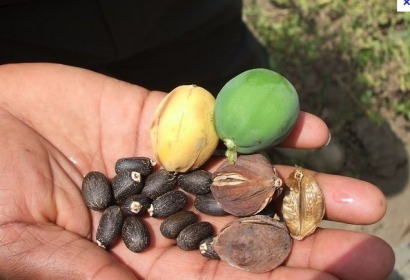
This month has seen an increasing amount of coverage in the news about rising food prices spurred among other factors by the continuing drought in the US. Just this week for instance, the IFPRI recommended that the US immediately stopped using corn to make ethanol for fuel "to prevent a potential global food price crisis."
"Poor and vulnerable groups in developing countries are hard hit by high and volatile prices of the agricultural commodities they depend on for their primary daily caloric intake," Shenggen Fan, Director General of the Washington-based think tank, told UPI.
The Swiss newspaper SonntagsZeitung also reported earlier in the month that Peter Brabeck, the Chairman of Nestle, the largest food group in the world, had urged politicians to lobby against using food crops such as corn to produce biofuels. "This does not mean that biofuel should be scrapped entirely but that producers should use other organic materials," Brabeck said.
The concerns aired by Brabeck and the IFPRI join those of other politicians and scientists who are calling for a rethink on what feed stocks are used to produce biofuels as increasing volumes of biofuels are produced. Almost half of US corn production and 60 percent of European rape for example is being used by the biofuel industry.
That said, the Global Renewable Fuels Alliance and other biofuel players highlight that the link between rising crop prices and biofuels needs to be more carefully considered.
“Calls to curtail biofuel production and use because of one bad growing season in the US is putting the cart before the horse,” says the GRFA. “We don’t yet know how extensive the damage from the drought in the US will be, nor do we know how farmers in the rest of the world will respond to stronger markets for their crops.”
In a statement released in response to the IFPRI’s calls to curb the use of food crops by the biofuels industry, the GRFA stressed that biofuels have proven to be an effective way to help lift rural communities worldwide out of poverty. “Stronger grain prices have spurred investments in agricultural production that are yielding more crops from the same acre of land. In turn, this is helping traditionally food and energy poor nations become more self-sufficient. Eliminating the market created by biofuels would be a setback to progress made in these areas and could very well increase poverty rates,” the Alliance said.
Investments made by nations around the world in domestic biofuel production are spurring innovation and evolution in the industry and the GRFA warns that removing policies that drive that innovation “would stall efforts to develop new biofuel technologies and relegate the world to an increased reliance on an ever-depleting supply of oil”.
Farmers in the US and across the globe are a resilient group and will respond to the signals being sent by the market, says the GRFA.
“In fact, farmers around the world responded after the commodity price spikes in 2008 with one of the largest corn crops in history in 2009. Biofuels are an important part of that market and are in no small part responsible for the increase in global grain production over the past few years.”
“It may seem pennywise, but it is pound foolish to be calling for an end to biofuel production and use,” the Alliance concluded in its statement.
For additional information:

